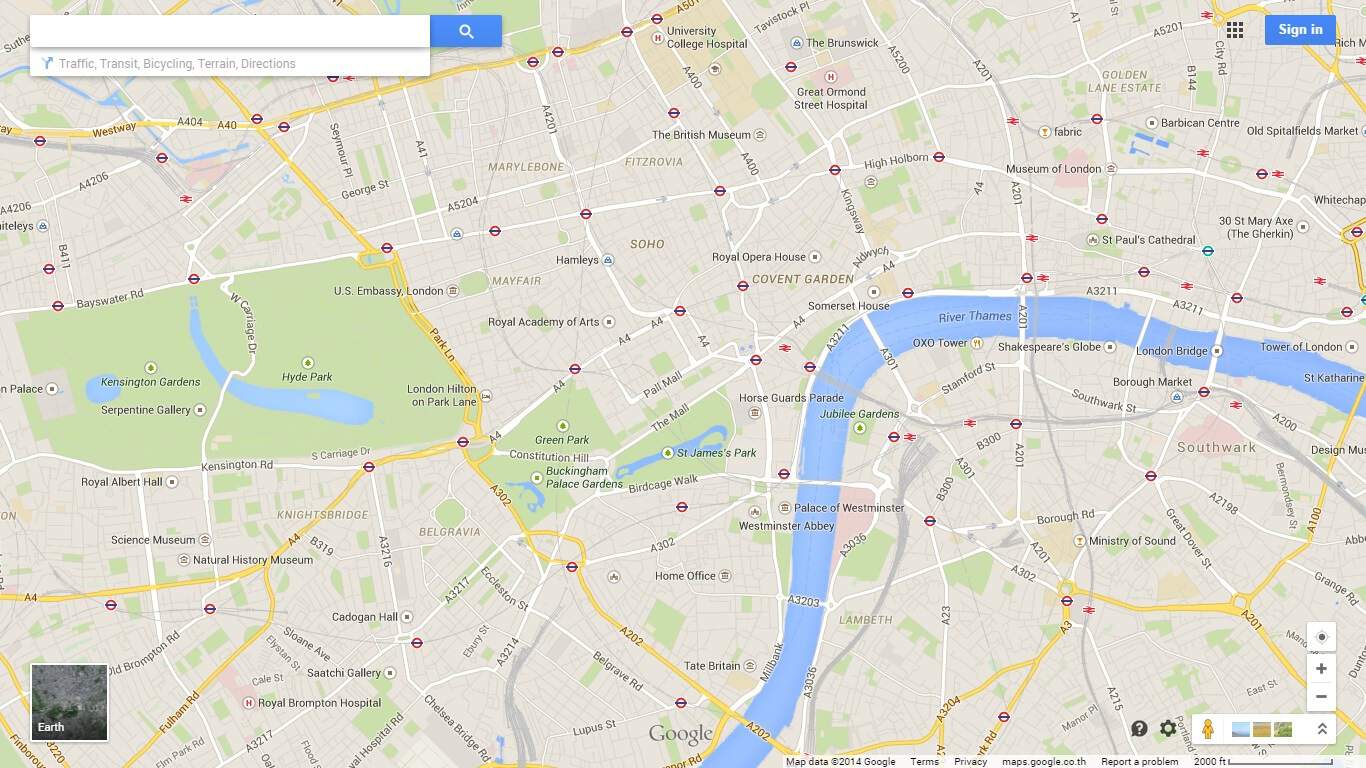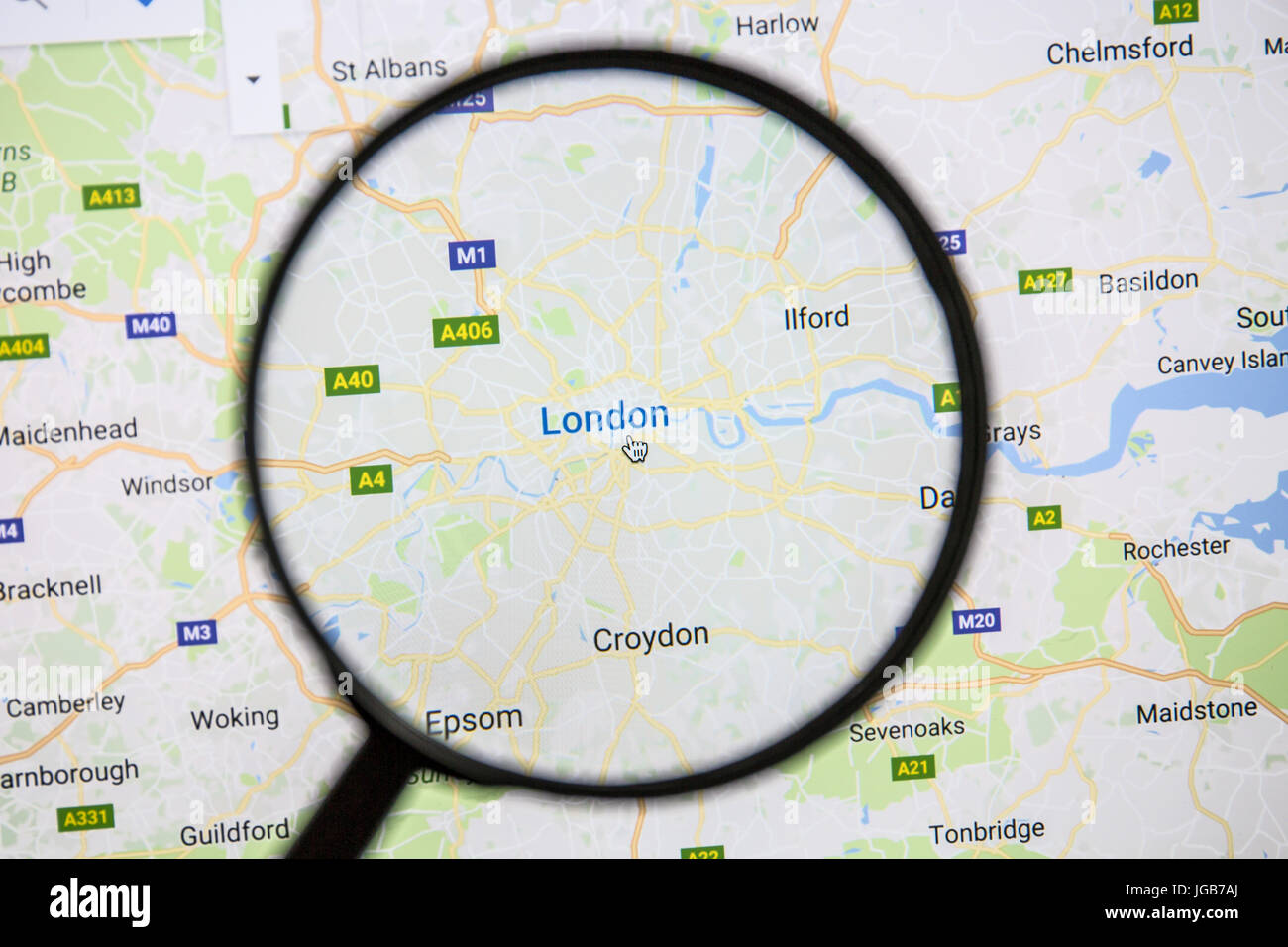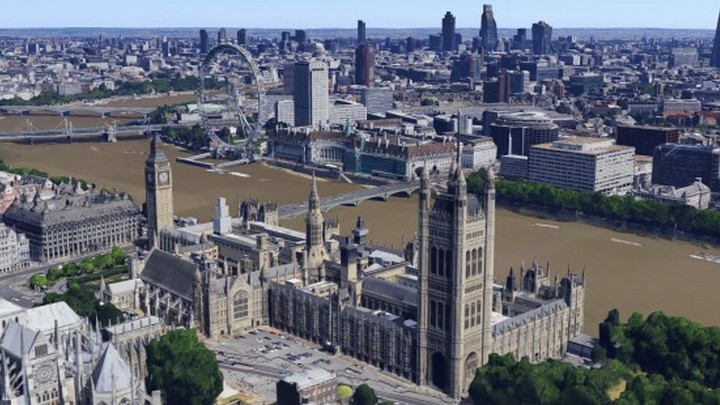Navigating the City: A Comprehensive Look at Google Maps in London
Related Articles: Navigating the City: A Comprehensive Look at Google Maps in London
Introduction
With great pleasure, we will explore the intriguing topic related to Navigating the City: A Comprehensive Look at Google Maps in London. Let’s weave interesting information and offer fresh perspectives to the readers.
Table of Content
Navigating the City: A Comprehensive Look at Google Maps in London

Google Maps, a ubiquitous tool for navigation and exploration, has become an indispensable resource for navigating the bustling metropolis of London. Beyond its core functionality of providing directions, Google Maps offers a wealth of information and services that enrich the user experience and contribute significantly to the city’s functionality. This article delves into the multifaceted role of Google Maps in London, exploring its features, impact, and future possibilities.
The Foundation: Navigation and Exploration
At its core, Google Maps serves as an intuitive and reliable navigation tool. Users can input their starting point and destination, and the application generates a route optimized for distance, time, or traffic conditions. The real-time traffic updates, a hallmark feature, provide users with insights into congestion and estimated travel times, enabling them to make informed decisions and avoid potential delays.
Beyond basic navigation, Google Maps empowers users to explore London’s diverse neighborhoods and landmarks. Street View, a groundbreaking feature, allows users to virtually walk through streets, providing a 360-degree view of their surroundings. This immersive experience enables users to gain a sense of place, scout potential locations, and even virtually visit iconic landmarks like Buckingham Palace or the Tower Bridge.
Beyond Navigation: A Rich Ecosystem of Information and Services
Google Maps transcends its role as a simple navigation tool by offering a comprehensive platform for accessing information and utilizing services. The platform integrates data from various sources, providing users with a wealth of information about their surroundings.
Local Business Discovery and Reviews: Google Maps serves as a comprehensive directory of local businesses, offering information on restaurants, shops, cafes, and more. Users can search for specific businesses, browse nearby options, and access user-generated reviews, allowing them to make informed decisions about where to dine, shop, or seek services.
Public Transportation Information: London’s intricate public transportation system can be daunting for newcomers. Google Maps seamlessly integrates with the Transport for London (TfL) network, providing real-time information on bus, tube, and train schedules, allowing users to plan journeys and avoid delays.
Point of Interest Exploration: Google Maps provides a detailed overview of London’s landmarks, historical sites, and attractions. Users can browse categories like museums, parks, theaters, and more, discovering hidden gems and planning their sightseeing itinerary.
Integration with Other Google Services: Google Maps seamlessly integrates with other Google services, enhancing the user experience. Users can access their Google Calendar to view upcoming appointments and receive directions to these locations. Integration with Google Maps for Android allows users to receive turn-by-turn directions even when their phone is locked.
Impact on London’s Functionality and Efficiency
Google Maps has had a profound impact on London’s functionality and efficiency, contributing to several key aspects of the city’s operations.
Improved Traffic Flow: Real-time traffic information provided by Google Maps enables drivers to avoid congested areas and choose alternative routes, contributing to smoother traffic flow and reduced congestion.
Enhanced Public Transportation Efficiency: By providing accurate and real-time information on public transportation schedules, Google Maps empowers users to plan their journeys efficiently, minimizing delays and optimizing the use of public transport infrastructure.
Tourism and Economic Growth: Google Maps plays a crucial role in promoting tourism in London. By providing comprehensive information about attractions, restaurants, and accommodation options, the platform attracts visitors and stimulates economic growth.
Accessibility and Inclusivity: Google Maps features like Street View and accessibility information enable people with disabilities to navigate London more independently and participate fully in the city’s life.
Future Possibilities: Innovation and Expansion
Google Maps continues to evolve, incorporating new technologies and features to enhance the user experience and contribute to London’s development.
Augmented Reality Integration: Augmented reality (AR) technology has the potential to revolutionize navigation and exploration. By overlaying digital information onto the real world, AR could provide users with real-time directions, information about nearby points of interest, and even personalized recommendations.
Personalized Recommendations: Google Maps could leverage user data and preferences to offer personalized recommendations for restaurants, shops, and attractions, enhancing the user experience and tailoring the platform to individual needs.
Integration with Smart City Infrastructure: Google Maps could integrate with London’s smart city infrastructure, providing users with real-time information on parking availability, pollution levels, and other relevant data, contributing to a more sustainable and efficient city.
FAQs: Addressing Common Concerns and Questions
Q: How accurate is Google Maps in London?
A: Google Maps relies on a vast network of data sources, including satellite imagery, user contributions, and real-time traffic updates. While the platform strives for accuracy, occasional discrepancies may arise due to construction, road closures, or other unforeseen circumstances.
Q: Is Google Maps safe to use in London?
A: Google Maps itself is a safe and reliable platform. However, users should exercise caution and common sense when navigating unfamiliar areas, especially at night. It’s advisable to be aware of your surroundings and take necessary precautions for personal safety.
Q: Can Google Maps be used offline?
A: Yes, Google Maps allows users to download maps for offline use. This feature is particularly useful when traveling to areas with limited or no internet connectivity.
Q: How can I contribute to Google Maps?
A: Users can contribute to Google Maps by reporting errors, suggesting edits, and adding reviews for businesses. These contributions help ensure the platform’s accuracy and relevance.
Tips for Optimizing Google Maps in London:
- Utilize public transport options: Google Maps seamlessly integrates with TfL, providing accurate and real-time information on bus, tube, and train schedules.
- Explore beyond the tourist hotspots: Google Maps offers a comprehensive directory of local businesses and hidden gems, allowing you to discover unique experiences.
- Download maps for offline use: This feature is particularly useful for navigating areas with limited or no internet connectivity.
- Contribute to the platform: Report errors, suggest edits, and add reviews to enhance the accuracy and relevance of Google Maps.
Conclusion: The Future of Navigation and Exploration in London
Google Maps has become an integral part of London’s landscape, transforming the way residents and visitors navigate and experience the city. The platform’s comprehensive functionality, real-time information, and seamless integration with other services have made it an indispensable tool for navigating the city’s complex infrastructure, exploring its diverse neighborhoods, and accessing a wealth of information about local businesses and attractions. As technology continues to evolve, Google Maps is poised to play an even greater role in shaping London’s future, enhancing the user experience, and contributing to a more efficient, accessible, and sustainable city.





Closure
Thus, we hope this article has provided valuable insights into Navigating the City: A Comprehensive Look at Google Maps in London. We appreciate your attention to our article. See you in our next article!